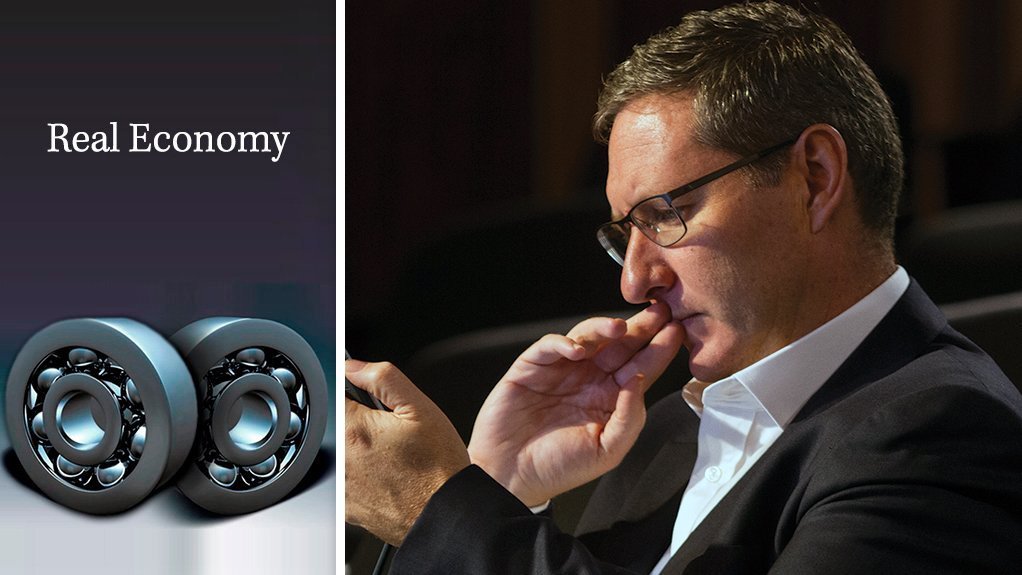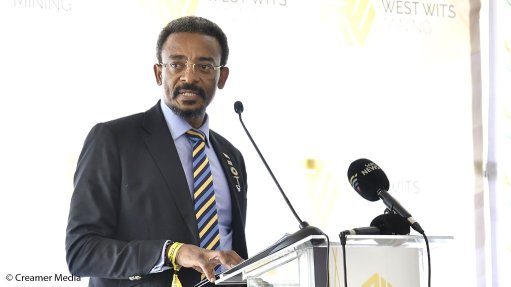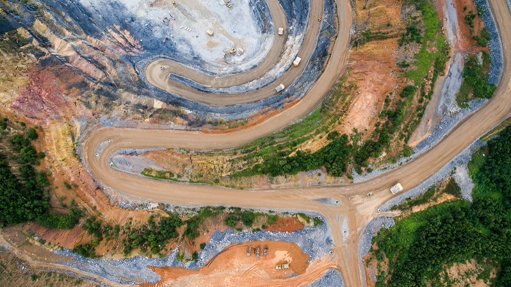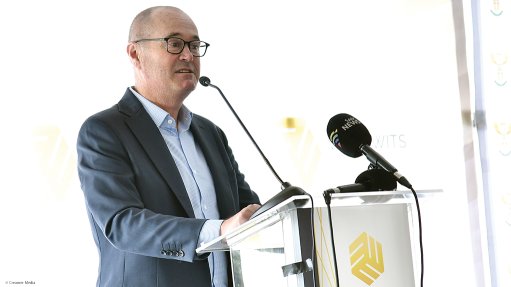Time to engage
The mood at the media conference hosted in February at the National Union of Mineworkers’ (NUM’s) 7 Rissik street head office in downtown Johannesburg was beyond angry. President Joseph Montisetse reported that the union was “bitterly dismayed” at the decision of its former general secretary, President Cyril Ramaphosa, to propose the unbundling of Eskom, and to do so without any prior consultation with workers.
The NUM leadership also expressed deep scepticism about government’s support for the introduction of renewable-energy independent power producer (IPPs), as well as suggestions that the renewables industry could provide more jobs than was the case currently in coal mining and coal-fired electricity generation. So unhappy was general secretary David Sipunzi that he warned that the NUM’s long-standing electoral support for the governing African National Congress (ANC) should not be treated as a “blank cheque”.
Days before the May 8 election, however, the NUM put out a statement that indicated it was willing to set aside its differences with the ANC, notwithstanding ongoing misgivings about the proposed Eskom unbundling. The union confirmed its backing for the ANC, stating the party could be “relied upon to take forward the liberation of this country”.
Even more startling, though, was the NUM’s revised stance regarding IPPs. The national executive committee reported that it would be seeking expert advice on the issue. It also called upon government “not to be only interested in introducing new power-generating technology, but also in the reskilling of the current Eskom workers, so that they can be absorbed into the envisaged clean-energy technology, if indeed it is going to create more jobs, as they claim”.
The significance of this statement should not go unnoticed or unappreciated. It opens the door for genuine engagement on the so-called ‘just energy transition’ with a union whose members are literally at the coalface of the inevitable shift from coal to renewable energy in South Africa. This inevitability arises primarily as a result of the growing economic advantages of technologies such as onshore wind and solar photovoltaic over coal – advantages that are further amplified by the fact that an electricity system based on solar, wind and flexible generators will have major health and environmental advantages over coal in the form of less pollution, reduced greenhouse-gas emissions and lower water consumption.
The good news, too, is that this shift will not take place overnight. Unlike other technology disruptions, there is time to react, given the long-life nature of power generation assets. Given the lead times involved, South Africa could, for instance, insert a policy adjustment to the Integrated Resource Plan directing renewables IPPs to build new plants in mining areas, while also offering employment preference for former mineworkers or Eskom employees. Government could also consider creating industrial zones to attract manufacturers of renewables components to regions such as Mpumalanga and the Free State.
Many other opportunities are sure to arise should a forum be created in which the just energy transition can be visualised and commitments can be made to specific implementation plans. It all starts, however, with a willingness to engage. Surely it’s time to do just that.
Article Enquiry
Email Article
Save Article
Feedback
To advertise email advertising@creamermedia.co.za or click here
Press Office
Announcements
What's On
Subscribe to improve your user experience...
Option 1 (equivalent of R125 a month):
Receive a weekly copy of Creamer Media's Engineering News & Mining Weekly magazine
(print copy for those in South Africa and e-magazine for those outside of South Africa)
Receive daily email newsletters
Access to full search results
Access archive of magazine back copies
Access to Projects in Progress
Access to ONE Research Report of your choice in PDF format
Option 2 (equivalent of R375 a month):
All benefits from Option 1
PLUS
Access to Creamer Media's Research Channel Africa for ALL Research Reports, in PDF format, on various industrial and mining sectors
including Electricity; Water; Energy Transition; Hydrogen; Roads, Rail and Ports; Coal; Gold; Platinum; Battery Metals; etc.
Already a subscriber?
Forgotten your password?
Receive weekly copy of Creamer Media's Engineering News & Mining Weekly magazine (print copy for those in South Africa and e-magazine for those outside of South Africa)
➕
Recieve daily email newsletters
➕
Access to full search results
➕
Access archive of magazine back copies
➕
Access to Projects in Progress
➕
Access to ONE Research Report of your choice in PDF format
RESEARCH CHANNEL AFRICA
R4500 (equivalent of R375 a month)
SUBSCRIBEAll benefits from Option 1
➕
Access to Creamer Media's Research Channel Africa for ALL Research Reports on various industrial and mining sectors, in PDF format, including on:
Electricity
➕
Water
➕
Energy Transition
➕
Hydrogen
➕
Roads, Rail and Ports
➕
Coal
➕
Gold
➕
Platinum
➕
Battery Metals
➕
etc.
Receive all benefits from Option 1 or Option 2 delivered to numerous people at your company
➕
Multiple User names and Passwords for simultaneous log-ins
➕
Intranet integration access to all in your organisation





















